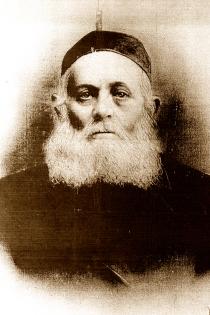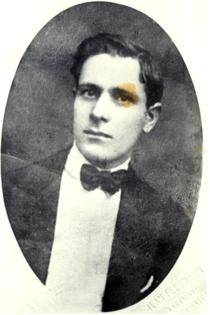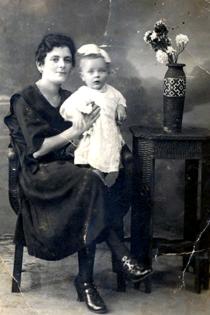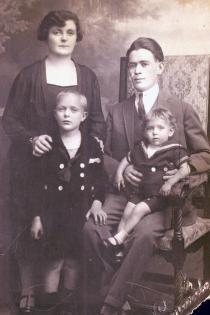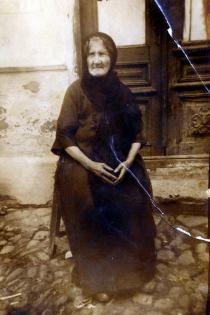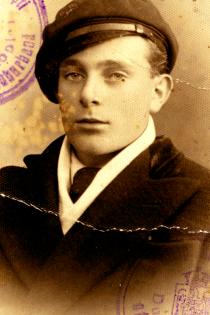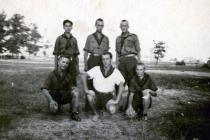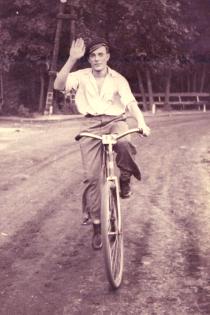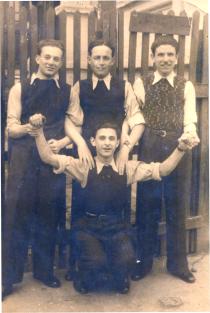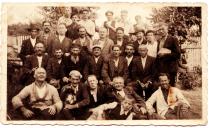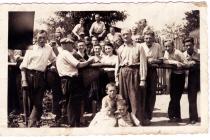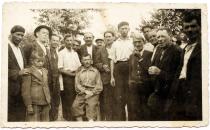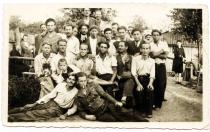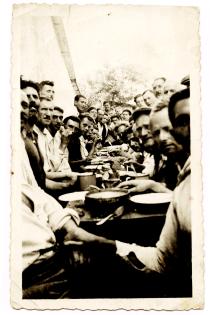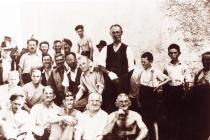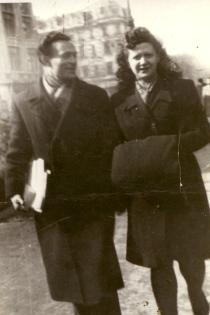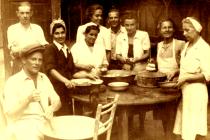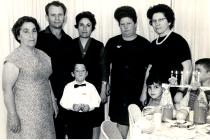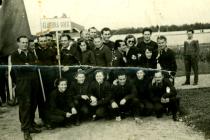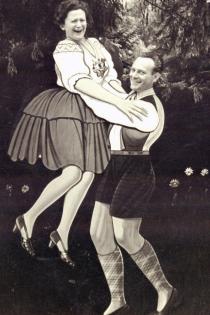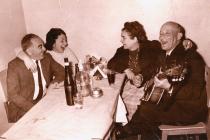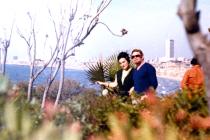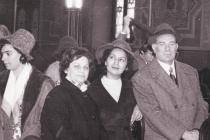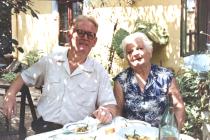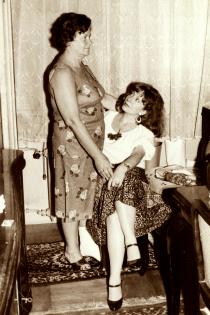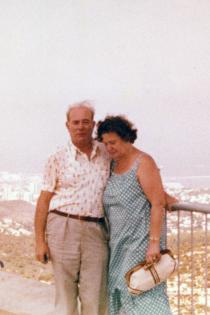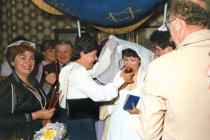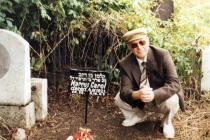This is my father, Carol Marcus, probably in 1918 or 1919. The photo was taken in Bucharest, at the Jean Feldman photo cabinet on Victoriei Ave.
My father, Carol Marcus, was [probably] born in 1900. He didn't have any education. He was an entrepreneur who made his own workshop of brushes and paintbrushes, although he had no qualification in this trade. He quit both his workshop and my mother who was pregnant and set off to join the Russian revolution. I don't recall ever meeting him. He only saw me once. He died in April 1921 and my mother remarried. I didn't have any relationships with my father's family for a long time.
It was only in my adolescence that I started to inquire about my father's activities, so that I could determine what kind of person he had been - after all, this man had joined a revolution in his twenties. He was engaged in a conspiratorial activity, securing the liaison between the Romanian revolutionary committees in Kiev and Odessa, in the Soviet Union. He carried orders from all over the country on what delegates were to be chosen for the coming convention that was held in Bucharest, during which the Socialist Party moved from the 2nd International to the 3rd International. [Ed. note: On 11th May 1921, the Socialist Party Convention decided the transformation of the party into the Romanian Communist Party and its affiliation with the Communist International. The following day, the delegates who had voted without reserve in favor of the affiliation, which implied the subordination to the Comintern and to Russia, were arrested by order of the Government.] This and other conspiratorial activities led to that huge trial in Dealul Spirii. [Ed. note: 'The trial of Dealul Spirii' was held between 23rd January and 4th June 1922. The delegates of the 1921 convention and other communist militants were prosecuted. A great number of politicians and intellectuals made statements or wrote in favor of the Communists. On 4th June 1922, King Ferdinand I issued an amnesty decree based on which 213 out of the 271 people who had been arrested were freed.]
They caught my father in the North Railroad Station and found his pistol. The serial number proved that the gun came from a firearms depot in Ramnicu Valcea - which is why a gunnery warrant officer committed suicide. I know these things from the newspapers I read in those days. The records from the Forensic Institute show that my father was deposed there without official papers. There was no official report signed by a district attorney and he died with his lungs congested. They beat him to death. He did his duty; he didn't give away anyone or anything. They set up a suicide for him and took his dead body to my uncle's, Georges Gherman, who was their informant. All the people in his field bought the story. I noticed something was wrong with the records from the Siguranta. [Mr. Leinweber conducted his research in the 1970's.] The file contained a leaflet launched by the Bessarabian Communists, who didn't accept the idea that my father had committed suicide. It read 'Assassination of the famous Misa, the comrade who?' This is how I found out about his conspiratorial name.

